You’d be surprised. Martin Luther King, Jr. is the world’s best-known American, followed by — are you ready? — Elvis Presley, Marilyn Monroe, Walt Disney, and Ben Franklin. Those are the top five. How do I know this? And on what basis? I checked Pantheon 1.0 at the MIT Media Lab, which did the elaborate mathso I didn’t have to. Pantheon is “a manually verified dataset of globally famous biographies” that maps historical cultural production and corrects for linguistic and statistical biases.
Here are the U.S. rankings for the top 100 best-known Americans. There’s Abe Lincoln at #9. And right behind him? Jimi Hendricks, if you can believe it, rounding out the top 10. You don’t get to Franklin Delano Roosevelt until #21. But, oh, there’s Andy Warhol, Bruce Lee, and Bob Dylan ahead of FDR, at #11, #12, and #13 — and ahead of John F. Kennedy, too.
One of the beauties of the Pantheon dataset is that you can slice it in so many ways. An obvious way is to compare the cultures and achievements of different nations as represented by their most illustrious figures. So, for example, have a look at the British rankings. Here are the world’s best-known Brits:
How about Germany? Here’s the complete ranking of the most famous Germans. I’m not surprised that Albert Einstein tops the list at #1 (though he’s only the world’s second most-famous physicist, behind Isaac Newton), followed by Johanne Sebastian Bach (#2) (though Mozart is the world’s most famous composer), Ludwig van Beethoven (#3), Martin Luther (#4), and Karl Marx (#5).
And France? Not too shabby either: Napoleon Bonaparte is the most famous Frenchman (though only the world’s fifth most famous politician). Next comes Jeanne d’Arc (#2), Rene Descartes (#3), Voltaire (#4), and Blaise Pascal (#5).
Another obvious way to slice the data is by profession or calling. Who are the world’s most illustrious American composers? If you wear a hat, hold onto it. Here they are, the top 19, beginning with George Gershwin, Leonard Bernstein, John Cage, Philip Glass, and, yes, Henry Mancini. You read that right.
How about the most famous American writers? Now hold onto your socks. The top 100 begins with Edgar Allan Poe, Mark Twain, Ernest Hemingway, Stephen King, and Jack London in that order. Hmmm, there’sJack Kerouac at #14, right behind Ralph Waldo Emerson and ahead of Henry James. And there’s Henry Miller right behind James. What a weird parade. No sign of that literary mainstay Robert Frost until way back (at #53). But there’s T.S. Eliot (#12), Emily Dickinson (#27), Allen Ginsberg (#29) and F. Scott Fitzgerald (#30). So what happened to that perennial Nobel hopeful Philip Roth? Well, he’s #37, a few places ahead of Nobel laureate Toni Morrison. As for another Nobel laureate, Saul Bellow, he doesn’t even make the list. But Susan Sontag does, and so do Sidney Sheldon, Mario Puzo, Tom Clancy, and Pearl Buck.
The best known the British writers begin, as you’d expect, with Shakespeare, followed by the less expected:Daniel DeFoe, William Blake, Arthur Conan Doyle, and Lord Byron. There’s Jane Austen at #7, right behindAgatha Christie and ahead of Charles Dickens. Wordsworth and Keats barely crack the top 20, behind them all.
Looking for the world’s best-known Russian writers? Go here. French writers? Go here. Chinese writers? Gohere. How about the world’s best known writers regardless of origin? Go here.
How about the most famous activists. You might be astonished. Che Guevera tops the list and Lady Godivacracks the top 10. The Pantheon 1.0 data base is nothing if not surprising. If you feel like taking a look at the world’s most famous people regardless of where they come from or what they do, go here. Aristotle andPlato rank ahead of Jesus Christ, while John Lennon doesn’t make that list at all. Neither do any of the other Beatles.
To be clear:
The Pantheon 1.0 data measures the global popularity of historical characters using two measures. The simpler of the two measures … is the number of different Wikipedia language editions that have an article about a historical character. The most sophisticated measure [is] the Historical Popularity Index [which adds] information on the age of the historical character (as a proxy for breaking the barrier of time) [and takes into account] the concentration of PageViews among different languages (to discount characters with PageViews mostly in a few languages). [It makes further adjustments] to discount characters that have short periods of popularity and [corrects for] the number of non-english Wikipedia pageviews (to reduce any English bias even further).
Go play with the database yourself. You can find the best known artists, comics artists, dancers, activists, architects, designers, lawyers, actors, singers, musicians, athletes, film directors, diplomats, explorers … and on an on. It’s an amazing set of listings created by this team, which requests this citation: Yu, A. Z., et al. (2016). Pantheon 1.0, a manually verified dataset of globally famous biographies. Scientific Data 2:150075. doi: 10.1038/sdata.2015.75. Nor should I forget to credit my tireless staff of thousands, which alerted me to Pantheon in the first place.
Jan Herman

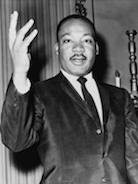


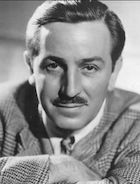
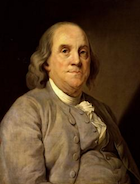

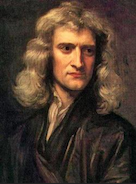
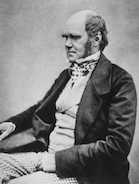
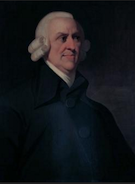

[…] 18 — Crossposted at IT: International Times, The Newspaper of […]
Pingback by Straight Up | Herman | Who Are the World’s Most Famous People? on 19 May, 2016 at 5:31 pmHere is a clear (and fairly concise) statement by the creators of Pantheon 1.0 about the meaning and the goal of their investigations. The title of the article: “Is Fame Fair?”
http://blogs.nature.com/scientificdata/2016/01/05/authors-corner-is-fame-fair/
They write that one way to think about fame is that it is “an aggregation of individual choices. This would mean that individuals, on average, avoid liking those who do not truly deserve attention, since these go against the evolutionary biases that nudge our choices on whom to learn from. Another alternative is to think that fame rooted in accomplishments is more sustainable over long periods of time than fame rooted in simple rich-get-richer processes. An explanation for this would be that individuals who have produced true accomplishments are more frequently recalled as benchmarks to evaluate the accomplishments of similar individuals.” They admit their research paper “cannot distinguish between these two alternatives …” Their goal in “studying the dynamics of human attention and popularity” is ultimately “to provide quantitative and reproducible measures of global attention . . . to improve our scientific understanding of questions about our collective memory and about how humans select what information to listen to and record.”
Comment by Jan Herman on 19 May, 2016 at 7:21 pm